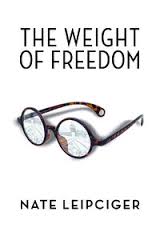From the Canadian Jewish News, February 2016
 The powerful Holocaust movie Son of Saul, which is up for the “best foreign film” prize at the Academy Awards on February 28, presents a gut-wrenching view of Auschwitz-Birkenau from the point of view of a sondercommando: part of a group that herds prisoners into the gas chamber, processes their belongings for valuables, ferries the corpses to the crematoria, and prepares for the next trainload of doomed Jews. Although shot in a studio, Hungarian director Laszlo Nemes’s film resembles what might have resulted had an actual sondercommando been wearing a hidden body camera.
The powerful Holocaust movie Son of Saul, which is up for the “best foreign film” prize at the Academy Awards on February 28, presents a gut-wrenching view of Auschwitz-Birkenau from the point of view of a sondercommando: part of a group that herds prisoners into the gas chamber, processes their belongings for valuables, ferries the corpses to the crematoria, and prepares for the next trainload of doomed Jews. Although shot in a studio, Hungarian director Laszlo Nemes’s film resembles what might have resulted had an actual sondercommando been wearing a hidden body camera.
As the New Yorker recently remarked, a movie that staged such nightmarish scenes without an overriding dramatic structure “would not be watchable, or even defensible.” Still, the Holocaust has spawned an enormous genre of literary and artistic works that is based upon such imagery.
The Weight of Freedom by Nate Leipciger is one of the latest titles to emerge from the Azrieli Foundation, which has published dozens of well-produced Holocaust survivor memoirs in Canada over the last decade. The Weight of Freedom presents a well-written description of life and death at Auschwitz-Birkenau and other slave labour and concentration camps. Told by a sympathetic narrator, the story is gripping, moving and insightful.
Born in the town of Chorzow, Poland, Leipciger experienced the horrors of the Sosnowiec Ghetto, Auschwitz-Birkenau and various camps in Silesia. Although he lost his mother and sisters, he and his father miraculously managed to stay together throughout their prolonged ordeal; both survived and came to Toronto.
Like a cosmic black hole, Auschwitz-Birkenau was a place where light (and life) was seldom allowed to escape. By all odds, Leipciger should have perished there or in any of a dozen other situations during the Shoah. Brought to the brink of death, he was ultimately spared to give a powerful testament of the insane, morally perverted world he had endured.
At Auschwitz-Birkenau, the “continuous flow of transports and the knowledge that unsuspecting people were being marched to their deaths in the gas chambers was unbearable,” he writes. “On some days, the smoke from the crematoria obscured the sun, creating a continuous dull grey transition from day to night.”
Transferred to another camp, he found that death was again omnipresent. He was assigned the task of carrying the dead from the barracks onto pyres for burning because the crematoria could not handle the camp’s daily quota. Disease was rife, especially typhus, and lice had infested everything: “A shake of our clothes and we would see the lice fall out like sand.”
What made existence slightly more bearable for him was the guiding presence of his father, who gave him a modicum of hope. In one instance, the ailing, malnourished teenager was ready to go to an infirmary until his father dissuaded him. Later they found out that all the sick prisoners had been taken to the forest and shot.
Forced on a series of long marches, the lad became dangerously weak and felt he lacked the strength to continue. The marches had resulted in the loss of thousands of participants; Nazi guards randomly shot stragglers. “For my father and me, survival depended on staying together; we had to sustain the will to live for each other,” he writes. When at one point he told his father he no longer cared what happened to him, his father responded angrily: “I will not hear of this, and I will not leave you. We did not give up before and you must not give up now. You will come with me even if I have to carry you.”
The Flossenberg camp, where they ended up, was so close to a nearby town that inmates “could practically see into the white curtained windows with flower boxes on their sills. Boys and girls congregated on the street, leaning on bicycles and having a good time horsing around.” For Leipciger, despite his weak and emaciated state, it was a reminder that normal life still existed beyond the barbed wires and sentry towers. Then one day, American soldiers arrived to liberate the camp. “As a rupture in a dam, floods of emotion so long suppressed — joy, tears and laughter — were uncontrollably released. My father and I embraced, danced, laughed, and cried with joy.” In their mad rush for food, some prisoners even tore away the flesh of a dead horse.
When some American soldiers asked him to open his shirt so they could photograph his skeletal body, Leipciger agreed. “I felt like a freak, exposing my emaciated body, but I complied as I was eager to be part of the documentation.” Afterwards, he was admitted to hospital where he battled typhus, so weak he couldn’t lift his head from the pillow.
After a postwar trip to Poland in a vain search for family members, he returned to his father in a German DP camp to await their Canadian visas, a process that took years. “In Germany at the time, no one wanted to speak about what had happened to the Jews. Everyone blamed it on the SS and the Gestapo and claimed no personal knowledge, nor did they show remorse. No one was prepared to accept responsibility. ‘The Jews one day all just disappeared, no one asked any questions,’ was the typical comment.”
One day, he nearly drowned while swimming, but was saved by a German while several Jews stood by, not caring to rescue someone they wrongly assumed was German. The incident had a “profound influence” on him, making him realize he could not tar all Germans with a single black brush.
He and his father came to Toronto in June 1948 and were met at the station by an uncle whom the father hadn’t seen in 36 years. “For the first time in my life, I saw [my father] cry, his tears flowing uncontrollably and his body shaking as he hugged his brother.”
Slowly integrating into Canadian life, he was again profoundly influenced by a remark from Rabbi Emil Fackenheim after a talk at Holy Blossom Temple. When Leipciger commented that he would not want to bring children into a world that persecuted Jews as the Nazis had done, Fackenheim “became agitated and asked him to come forward and said, ’Young man, this is exactly what Hitler intended. Don’t you see you are giving Hitler a posthumous victory?’ His words jolted me into the realization that the Nazi indoctrination and propaganda had worked on me: I was its victim. Little did I know, at the time, that this proclamation would one day become Rabbi Fackenheim’s thesis and be the basis of his proposal for a 614th commandment.”
An engineer who built up a large firm in partnership with others, Leipciger married, raised three children, and began writing his memoir at the age of 84. A leader in the Holocaust education movement and the annual March of the Living, he describes returning to Auschwitz-Birkenau and climbing the gatehouse tower to an observation room where, for the first time, he could see the entire camp in its entirety. “This view was not one we could see as prisoners,” he writes. “I never knew the enormity of the camp. This, without a doubt, was a huge murder factory. No one could dispute it. It was overwhelming.” ♦






